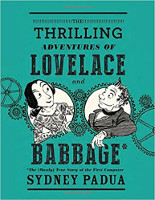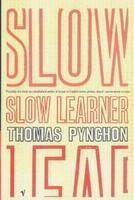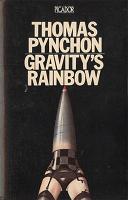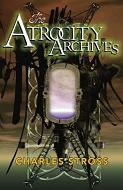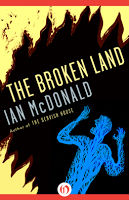 Ian McDonald is the author of a long (and growing) list of books and collections; with Philip K. Dick and BSFA Awards to his Name. His current output is the Everness trilogy; whilst The Broken Land is a classic story of his, originally published in 1992, and now re-published in eBook format by Open Road Integrated Media (who specialise in doing exactly that) in July 2013.
Ian McDonald is the author of a long (and growing) list of books and collections; with Philip K. Dick and BSFA Awards to his Name. His current output is the Everness trilogy; whilst The Broken Land is a classic story of his, originally published in 1992, and now re-published in eBook format by Open Road Integrated Media (who specialise in doing exactly that) in July 2013.
The story follows the tribulations and depredation of a girl called Mathembe, born to Confessor parents in Chepsenyt Township in the Transfluvial Province. Mathembe, who has never spoken a work (despite having the physical means to do so) lives in a fascinating, organical world, where food, house elements, glass and ceramic cobbles, conveyances (trux, jeppeneys, traix – I leave it to the reader to imagine how these look!), as well as weapons are grown, or shaped from organic 'plasma' by people who have to skill to shape it.
On death, as recently happened to her grandfather, the head of the dead person is removed, and added to a tree in the grove of ancestors, where the join the Dreaming (which comes across somewhere between a massive, organic parallel computer consisting of all dead Confessors, and some kind of afterlife MMORPG). But the heads can also be kept alive in a pot of organicals and thus moved and carried along (as Mathembe does with her grandfather for most of the story), or added as an Oracle and back-up driver on a bus...
The world the story plays in has been severely changed by the 'Green Wave' which brought about the above organic environment, but also the changes to the human nervous system to directly manipulate DNA and shape live out of plasma. But this is a deeply torn world – between religions (Confessors and Proclaimers – I won't go into the religious set-up, and associated conflict; it runs deep, and it's silly, as these always are), between the forces of the Emperor across the River and his waning empire, and the local forces of the Warriors of Destiny, and between the ones living with these organic capabilities, and those (still?) using metal, technology, combustion.
Aligning the Emperor with the Proclaimers, Technology, and the New Speech versus the Warriors of Destiny with Confessors, organical tech, and the Old Speech is, whilst containing a lot of truth, also much too simplistic as Mathembe learns on her wanderings after Chepsenyt is burned to the ground by the Emperor's troops and Helicopters for harbouring two fugitive Warriors of Destiny.
The story is quite evenly paced (maybe a tad on the slow side for me), with information dumps and historical inserts (they fit into the story quite organically, for want of a pun) providing depth. Everything, especially in the first half, is told by exposition, has to be experienced by the reader through the eyes of the protagonist.
The endless demonstration of what feels like the only theme of the book - “this is a cruel and torn world, which does not care one bit about you, and you shall lose whatever you have, and have left” - it's actually every so slightly depressing.
I hasten to add that the 2nd half (also containing parts which could have been, and most likely were written separately and have different viewpoints and tone and voice) is much stronger. It shows, if I can spill that much from the latter parts of the book, developments beyond the unrelenting spiral downwards, inwards, desperation-wards of the 1st half. The pacing is faster,too, the story flows much better in the latter parts. For me this saved the book from being an inconsistent and inconsequential story set in a fascinating world; overall this is a in parts harrowing story which, in my opinion, should have had follow-on books to show further developments. And yes, set in a world you want to learn more about, and which is, at it's heart, only slightly (and, to me, weirdly) different from ours in the end.
Ah, a facet of said world: they have, or had, interstellar travel, most likely some kind of FTL/Wormhole tech. During the story a Soul-Ship arrives, and the planet is lit up by the light of an alien sun, both on arrival and on departure. A gorgeous picture, in my opinion.
But despite the story being set in the dirty, low-tech underbelly of a high tech (if maybe not as high as it used to be) society this did not strike me as Cyberpunk; but your definitions might differ (if definitions are important to you).
There are some stand-out sequences in terms of the descriptions the author gives us, some of which would actually not be out of place in a Burroughs novel (that's not E.R., but William Burroughs, a vastly superior writer. You're welcome to disagree...).
But even besides this the book has some really wonderful language – I very much appreciated phrasings like people talking about the edge of the world dipping beneath the sun, and the like.
Recommended book, hang in there through the first half (and yes, you need this for the rest of the book, so no cheating and skipping forward), it's worth doing so!
Title: The Broken Land
Author: Ian McDonald
Reviewer: Markus
Reviewer URL: http://thierstein.net
Publisher: Open Road Integrated Media
Publisher URL: http://www.openroadmedia.com
Publication Date: July 2013
Review Date: 130922
ISBN: 9781480432178
Pages: 294
Format: ePub
Topic: Societal
Topic: Bio-Engineering
Thanks to the publisher for the review copy.




